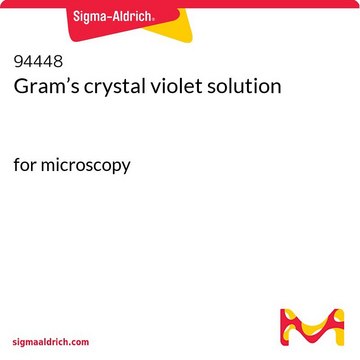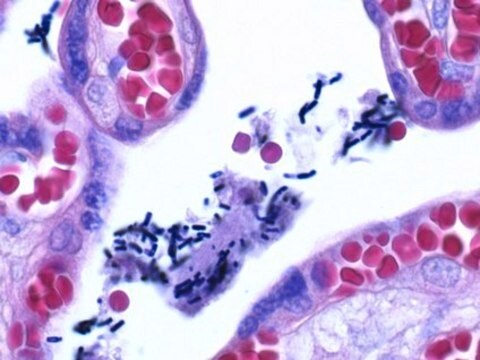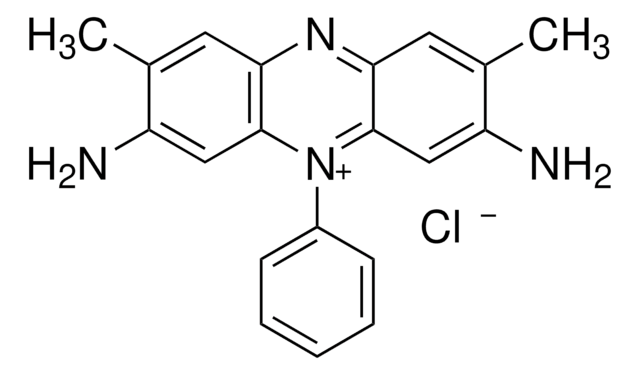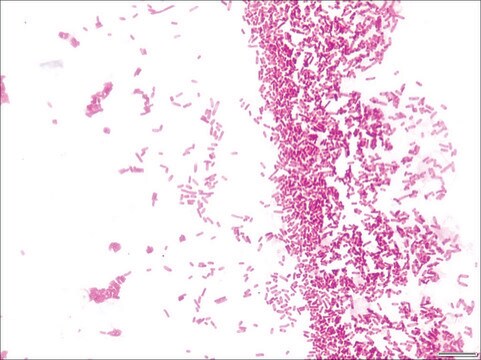HT90132
Crystal Violet Solution
About This Item
Productos recomendados
formulario
solution
Nivel de calidad
caducidad
Expiry date on the label
DIV
for in vitro diagnostic use
concentración
2.3%
técnicas
microbe id | staining: suitable
pH
4.6
aplicaciones
hematology
histology
temp. de almacenamiento
room temp
cadena SMILES
[Cl-].CN(C)c1ccc(cc1)\C(c2ccc(cc2)N(C)C)=C3/C=C\C(C=C3)=[N+](/C)C
InChI
1S/C25H30N3.ClH/c1-26(2)22-13-7-19(8-14-22)25(20-9-15-23(16-10-20)27(3)4)21-11-17-24(18-12-21)28(5)6;/h7-18H,1-6H3;1H/q+1;/p-1
Clave InChI
ZXJXZNDDNMQXFV-UHFFFAOYSA-M
¿Está buscando productos similares? Visita Guía de comparación de productos
Aplicación
Componentes
Palabra de señalización
Warning
Frases de peligro
Consejos de prudencia
Clasificaciones de peligro
Aquatic Chronic 3 - Carc. 2 - Eye Irrit. 2 - Flam. Liq. 3
Código de clase de almacenamiento
3 - Flammable liquids
Clase de riesgo para el agua (WGK)
WGK 2
Punto de inflamabilidad (°F)
100.0 °F - closed cup
Punto de inflamabilidad (°C)
37.8 °C - closed cup
Equipo de protección personal
Eyeshields, Faceshields, Gloves, type ABEK (EN14387) respirator filter
Certificados de análisis (COA)
Busque Certificados de análisis (COA) introduciendo el número de lote del producto. Los números de lote se encuentran en la etiqueta del producto después de las palabras «Lot» o «Batch»
¿Ya tiene este producto?
Encuentre la documentación para los productos que ha comprado recientemente en la Biblioteca de documentos.
Los clientes también vieron
Nuestro equipo de científicos tiene experiencia en todas las áreas de investigación: Ciencias de la vida, Ciencia de los materiales, Síntesis química, Cromatografía, Analítica y muchas otras.
Póngase en contacto con el Servicio técnico







